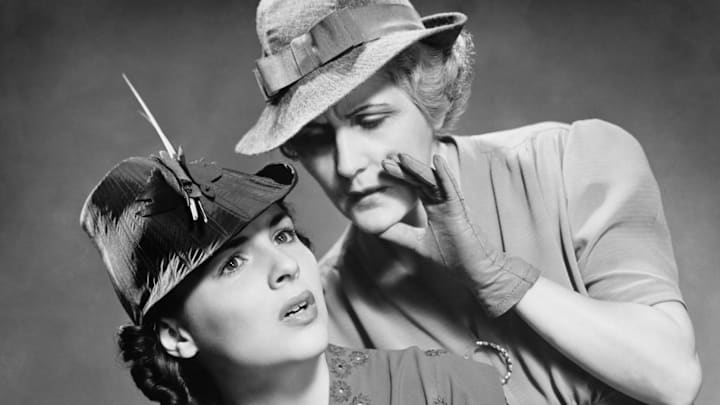Mental Floss’s new book, The Curious Compendium of Wonderful Words, reveals that today’s insults have nothing on the barbs and burns thrown in eras past. In this episode of The List Show, we drop a few unforgettable insults from the book, just in case you ever need to spice up a squabble.
Puzzlewit was coined in the 1860s and refers to “one who is puzzled, a stupid or silly person,” according to the Oxford English Dictionary (it can also be used as an adjective to describe something “that puzzles or would puzzle one’s wit”).
Unlicked cub, meanwhile, refers to both “an unformed, ill-educated young man” and “a rude uncouth young fellow,” as lexicographer Francis Grouse explained in A Classical Dictionary of the Vulgar Tongue.
You’ll also learn the perfect insult for a rude, gossipy person: Nash-gab. The word dates back to the 19th century and was likely formed by combining the word snash—meaning “abuse, insolence”—with gab. When the latter word was first recorded in the 18th century, it referred to “lively conversation,” according to the OED, but it later came to mean “foolish or inconsequential talk.” Put them together and voilà, nash-gab.
Check out the full video on YouTube for more old-timey insults, and don’t forget to subscribe so you never miss a fun video. And if you’re hungry for more fascinating slang terms and phrase origins, Mental Floss’s new book, The Curious Compendium of Wonderful Words: A Miscellany of Obscure Terms, Bizarre Phrases, & Surprising Etymologies, is out now. You can pick up your copy on Amazon, Barnes & Noble, Books-A-Million, or Bookshop.org.
